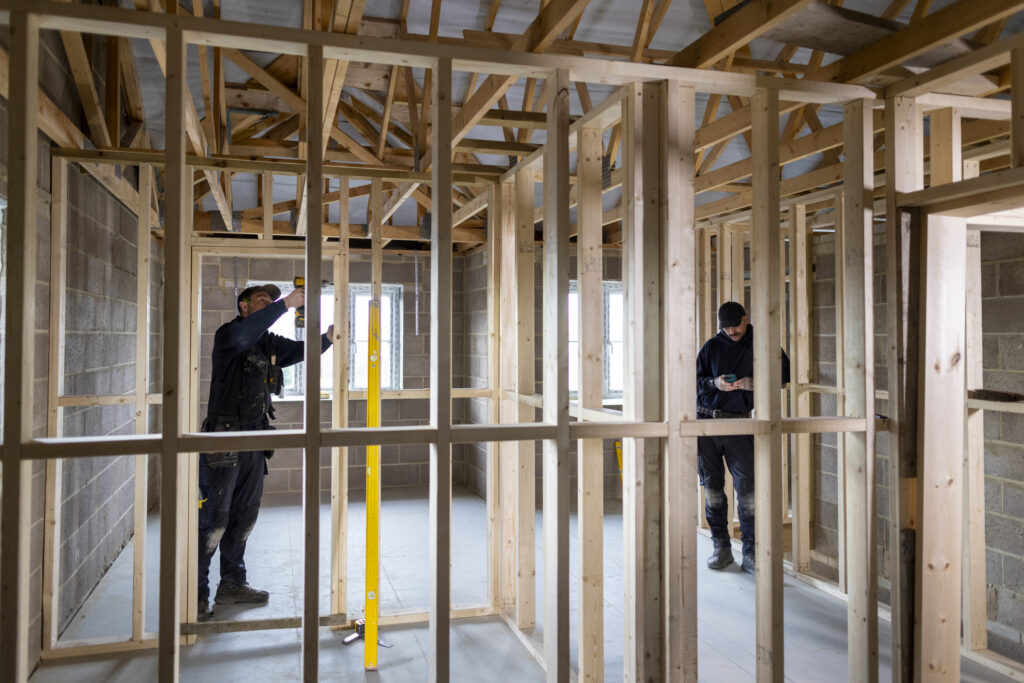
A Chair’s perspective: loans to create affordable homes
The East Cambridgeshire parishes of Stretham and Wilburton joined forces in 2012 to address the housing crisis affecting their villages.
They formed the Stretham and Wilburton Community Land Trust (SWCLT) to provide affordable accommodation to those living and working in the area.
To date, SWCLT has taken out three loans with Charity Bank, totalling £1,844,000, to build 15 new homes, which are now rented out to 35 local people.
Chair of the board of trustees, Charles Roberts, explains how they found the loan process and gives some advice for other organisations perhaps considering loan finance.
When did you first approach Charity Bank?
We came to Charity Bank when we initially formed, but it turns out it’s quite difficult to get development finance when you’re a group of individuals coming together with just an idea and no planning policy and no land!
We managed to get some initial funding from a variety of other sources, including the district council and one of the landowners. Once we had our first assets to borrow against, we then went back to Charity Bank for the loans we needed to build new properties.
How did you find the process of applying for the loan?
It was quite painful, but we understand why it has to be that way. Although the loans are to aid social objectives, it’s still a commercial process and appropriate due diligence and management of the funds is needed.
What were the main challenges?
Dealing with the lawyers was quite difficult. Legal processes seem to be set up for run-of-the-mill businesses, but we don’t fit neatly into any box and it felt like this caused a lot of additional to-ing and fro-ing. It could have been more streamlined. On our side, only having one part-time clerk who was dealing with most of this presented its own challenges as well.
Is there anything you wish you had known before starting the loan process?
The length of time it all takes, especially the legal process, and the extent of the professional costs involved – solicitors, valuers and the bank fees.
Do you have any advice for other organisations looking to take out loan finance?
Plan well in advance as the whole borrowing process takes considerable time. And keep in good contact with your lender throughout to ensure absolute clarity on what is required at each stage and to avoid delays.
Also make sure that you have someone on your team who understands finance and the needs of lenders. It’s a critical relationship with its own language. If you haven’t, seek some expert advice.
What would you say to other charities or social enterprises who are concerned about the risks of taking on loan finance?
Look around at what other charities or organisations like yours have achieved and try to speak to others that have been through the process. For other Community Land Trusts, I’d say it’s worth seeking professional input from the National CLT Network.
What are you most proud of when you speak to your residents, and reflect on how far SWCLT has come?
I think all of us at SWCLT are most proud when we hand a property over. Many residents are extremely grateful to move into a lovely property giving them independence at affordable rental rates.
What’s next for SWCLT?
We’ve just submitted a planning application for a very similar sized development in Wilburton, called Camps Field. If approval is given, a further 30-35 affordable homes will be built and purchased by the Community Land Trust to help house the many people and families on our waiting list.
Do you think it’s important for charities and social enterprises to be able to access social investment?
Yes, it’s vital. You need a lender that understands what you’re trying to achieve rather than just going down the tick box approach. Tick box will only take you so far with commercial lenders and if you don’t fit the mould then they’re not really interested. That’s why it was so wonderful to have Charity Bank’s understanding and alignment of objectives.
About Charity Bank
Charity Bank is the loans and savings bank owned by and committed to supporting the social sector. Since 2002, we have used our savers’ money to make more than 1380 loans totalling over £580m to housing, education, social care, community and other social purpose organisations.
Nothing in this article constitutes an invitation to engage in investment activity nor is it advice or a recommendation and professional advice should be taken before any course of action is pursued.


